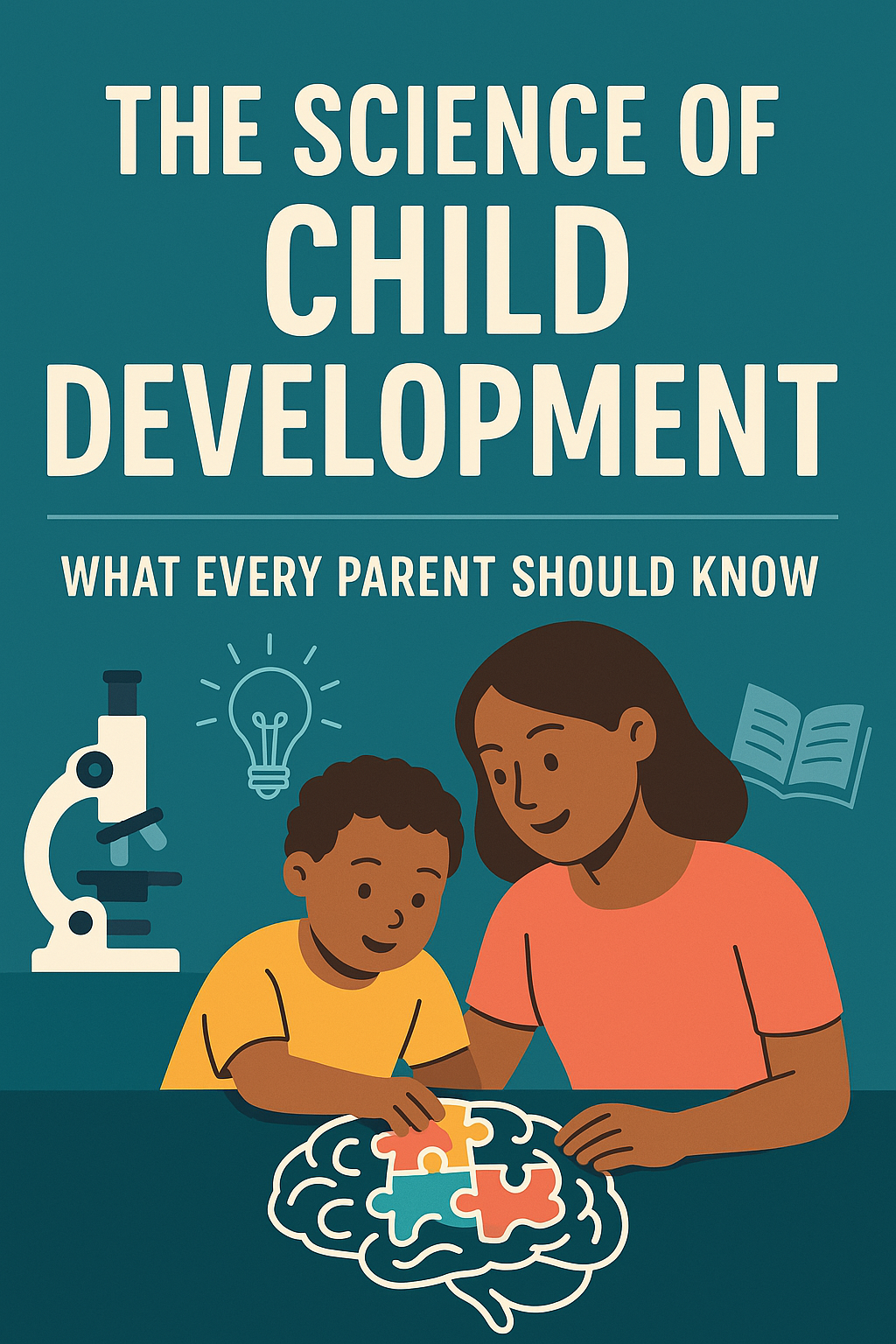
The Science of Child Development: What Every Parent Should Know
Understanding the Basics of Child Development
When it comes to raising children, it’s easy to feel overwhelmed by the flood of parenting advice and conflicting tips you encounter. But what if we told you that understanding the science of child development could be the key to unlocking your child’s potential? Let’s dive into the fascinating world of child development and explore how you, as a parent, can actively shape your child’s future.
Why Child Development is Crucial for Parents
Child development is more than just about growing up physically. It’s about how children learn, socialize, and develop emotionally and cognitively. As parents, understanding these stages can help you better navigate challenges and foster an environment where your child thrives.
The Stages of Child Development: What You Need to Know
Child development occurs in stages, and each one is as important as the next. From birth to adolescence, these stages shape how your child interacts with the world. These stages can be broken down into major periods: infancy, early childhood, middle childhood, and adolescence. Each stage has distinct milestones you’ll want to look for, and your role as a parent is to provide support as they progress.
Infancy and Early Childhood: The Foundation Years
From birth to age 5, the foundation for all future learning is laid. During this time, children’s brains grow rapidly, and their ability to process and absorb information is at its peak. This is when educational toys can play a huge role. Simple toys like blocks, puzzles, or even interactive books help improve motor skills, cognitive development, and social interaction.
How to Encourage Creativity in Children
Creativity isn’t just about painting or drawing—it’s about problem-solving, thinking outside the box, and developing a mindset that embraces curiosity. Encouraging creativity is essential for healthy cognitive development. Simple activities like asking your child open-ended questions or allowing them to build their own projects with everyday items can spark their creative minds.
Work-Life Balance: Striking the Right Harmony
As a parent, managing work and home life is no small feat. It’s easy to feel pulled in a million directions. But achieving a healthy work-life balance is crucial for both you and your child’s well-being. Creating a structured routine, setting clear boundaries between work and home time, and focusing on quality time with your child can help ease the stress of juggling responsibilities.
Practical Advice for Raising Confident Children
Confidence doesn’t come overnight. It’s built from the ground up, and your parenting style can have a lasting impact on your child’s self-esteem. Encourage your child to try new things, provide positive reinforcement, and let them know it’s okay to make mistakes. The more you empower your child, the more confident they will become in themselves.
Top Tips for Managing Screen Time
In today’s digital age, managing screen time is one of the most pressing parenting challenges. Too much screen time can have detrimental effects on your child’s development, from impaired social skills to negative impacts on their health. Set clear limits on screen usage and prioritize non-digital activities that promote active learning and physical movement.
Best Educational Tools for Kids in 2025
As technology evolves, so do the tools available to help children learn. Educational apps and platforms can be a great way to reinforce what your child is learning in school or explore new areas of interest. Look for apps that make learning fun and engaging—tools like interactive math games, coding challenges, or language learning apps can supplement your child’s education.
Affordable Ways to Create Fun Learning Activities at Home
Learning doesn’t have to happen in a classroom! Some of the best learning activities for kids can be done right at home with everyday items. From DIY science experiments to scavenger hunts or reading challenges, the possibilities are endless. The key is to make these activities engaging and fun so your child is excited to learn.
Effective Communication with Teenagers
Communicating with teenagers can be a tricky business. At this stage, your child is learning to navigate their own identity, and they may not always be open to your advice. But by maintaining a respectful and open line of communication, you can strengthen your relationship and guide them through their challenges. Listen more than you speak, and be patient. They may not always show it, but they value your input more than you think!
Top Parenting Challenges and How to Overcome Them
Parenting isn’t always a smooth ride. Challenges will arise at every stage, whether it’s dealing with tantrums in toddlers or navigating the complexities of adolescence. One of the biggest challenges is maintaining a positive relationship despite these hurdles. By setting clear expectations, being consistent, and showing empathy, you can tackle any challenge that comes your way.
How to Create a Positive Learning Environment at Home
A positive learning environment is key to helping your child succeed academically and personally. This doesn’t necessarily mean a perfectly tidy room, but rather a space that promotes curiosity, focus, and creativity. Whether it’s a quiet corner for reading or a dedicated study space, make sure the environment is one where your child feels safe, motivated, and free to explore.
How to Maintain Work-Life Balance as a Parent
Maintaining work-life balance is an ongoing challenge for many parents, especially when juggling careers, home responsibilities, and social lives. The secret lies in prioritizing what matters most, setting boundaries, and practicing self-care. By keeping a flexible mindset and being organized, you can create a balance that works for you and your family.